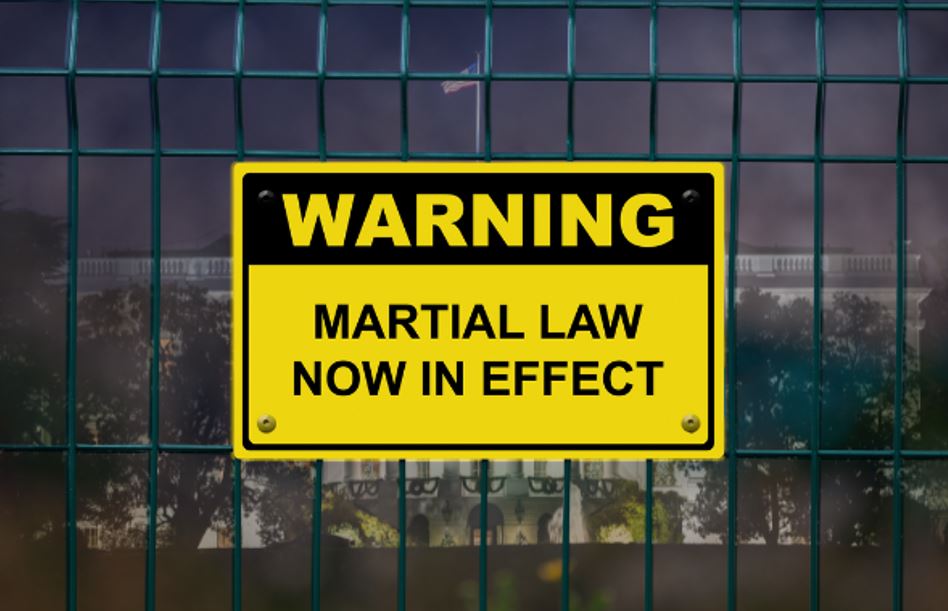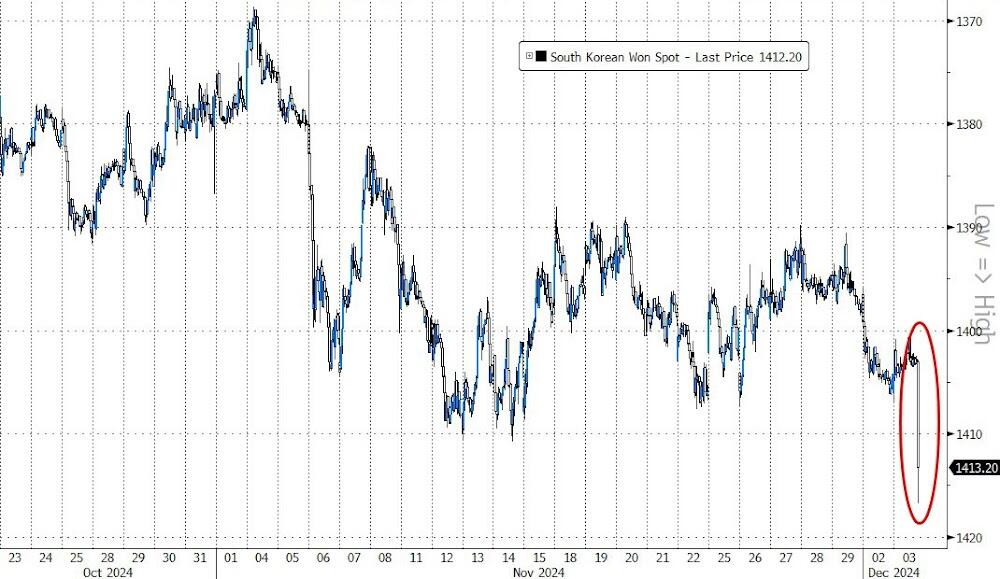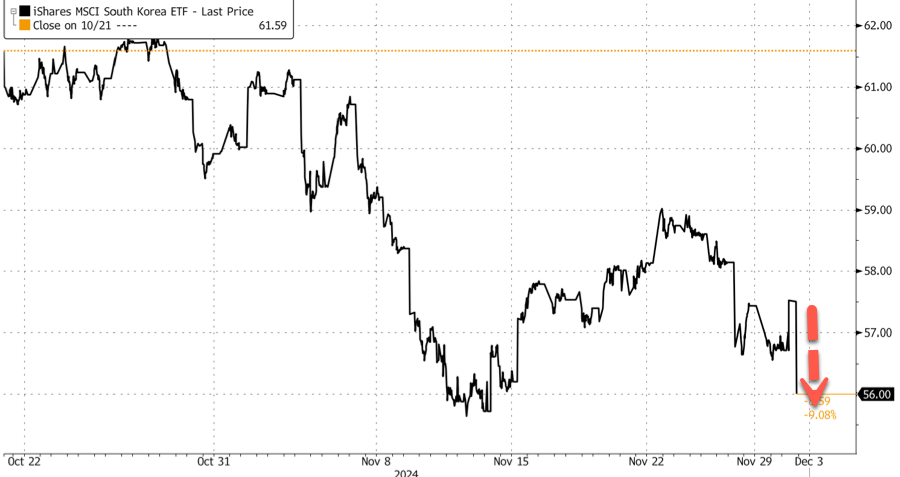 By Tyler Durden
By Tyler Durden
Moments ago, South Korean President Yoon Suk Yeol declared emergency martial law, accusing the opposition party of engaging in anti-state activities. This is not a headline you see every day.
South Korea President Declares Martial Law
윤대통령 종북세력 척결하겠다 비상계엄 선포 pic.twitter.com/tPydUzKpDU
— wind (@windinwindow) December 3, 2024
Here are the headlines via AFP News:
- SOUTH KOREA’S YOON SAYS GOVERNMENT ADMINISTRATION HAS BEEN PARALYZED BECAUSE OF OPPOSITION PARTY CONDUCTS
- SOUTH KOREA’S YOON SAYS THROUGH MARTIAL LAW HE WILL REBUILD FREE AND DEMOCRATIC COUNTRY
AP News sheds more color on the situation:
President Yoon Suk Yeol made the announcement during a televised briefing, vowing to “eradicate pro-North Korean forces and protect the constitutional democratic order.” It wasn’t immediately clear how the steps would affect the country’s governance and democracy.
Yoon — whose approval rating has dipped in recent months — has struggled to push his agenda against an opposition-controlled parliament since taking office in 2022.
Yoon’s conservative People Power Party had been locked in an impasse with the liberal opposition Democratic Party over next year’s budget bill. He has also been dismissing calls for independent investigations into scandals involving his wife and top officials, drawing quick, strong rebukes from his political rivals.
Our take…
There is no actual emergency: this is one giant "wag the dog" moment where the government is trying to deflect attention from its incompetence. This is literally Korea's "Muh Russia" moment. https://t.co/hVOR6bviCd
— zerohedge (@zerohedge) December 3, 2024
Declaring "Martial law" in Korea is equivalent to the CIA paying ISIS to kill some folks to distract from what is going on domestically. https://t.co/hVOR6bviCd
— zerohedge (@zerohedge) December 3, 2024
In a recent Korea Times op-ed, Chun In-bum, a retired ROK Lieutenant General, stated:
Recent comments and accusations suggesting that the Yoon Suk Yeol administration may be creating a situation to declare martial law have reignited interest in the topic within South Korea.
…
Martial law is divided into two types:
- emergency martial law, and
- security martial law.
Emergency martial law grants the government sweeping powers, such as suspending the warrant system, restricting freedom of the press, curbing publication rights and limiting assembly and association, as well as overriding the authority of civilian courts and government agencies. When martial law is declared, the president must notify the National Assembly immediately. If the National Assembly demands its termination by a majority vote, the president is legally obligated to comply. While the National Assembly retains legislative authority, there are exceptional circumstances under which a military regime can temporarily assume control, particularly in the event of a coup that disrupts the normal constitutional order.
Martial law has a troubled history in South Korea. It was first declared on Oct. 21, 1948, in response to the Yeosu-Suncheon Incident, a rebellion by South Korean soldiers who refused to suppress a left-wing uprising. Since then, it has been used by various regimes as a mechanism to maintain power, often at the expense of civil liberties. One of the most infamous instances occurred in 1979, following the assassination of President Park Chung-hee. Martial law was declared nationwide, leading to the suppression of pro-democracy movements and widespread human rights abuses.
These historical abuses of martial law have left a deep imprint on South Korean society, creating a strong public aversion to any suggestion of its reimplementation. The memories of authoritarian rule, censorship and political persecution are still fresh for many citizens, particularly for those who lived through the turbulent decades of the 1960s to 1980s. The last declaration of martial law, in 1979, marked a period of intense social and political repression and the eventual rise of a democratic movement that culminated in the democratic reforms of the late 1980s.
In markets, South Korea’s won dropped 1% to a two-year low of 1419.28 versus the dollar.
Ishares Msci South Korea ETF (EWY) falls 2.5% in premarket trading.
*Developing…
Source: ZeroHedge
Become a Patron!
Or support us at SubscribeStar
Donate cryptocurrency HERE
Subscribe to Activist Post for truth, peace, and freedom news. Follow us on Telegram, HIVE, Minds, MeWe, Twitter – X and Gab.
Provide, Protect and Profit from what’s coming! Get a free issue of Counter Markets today.


